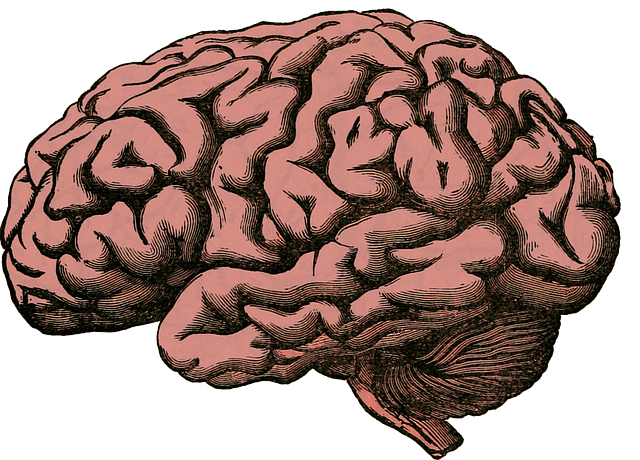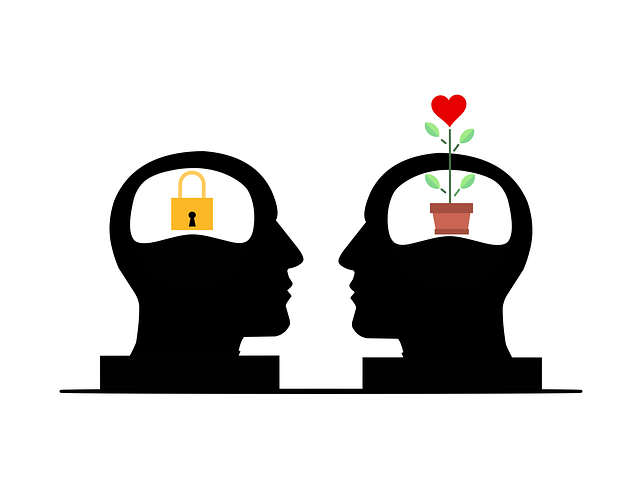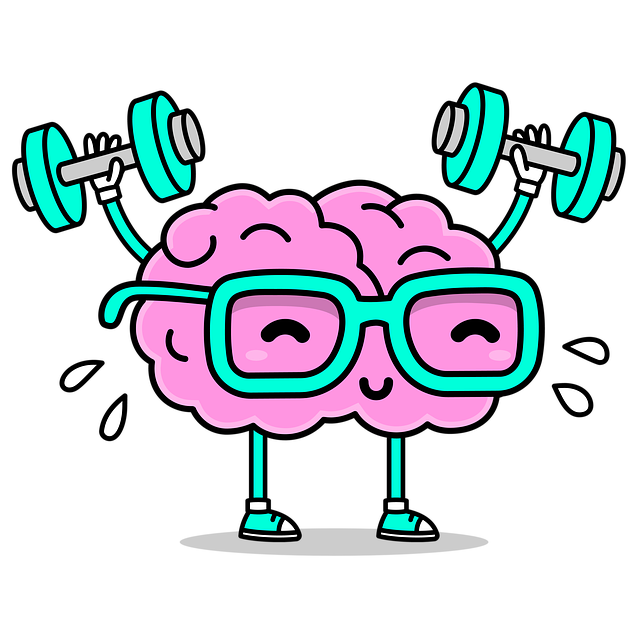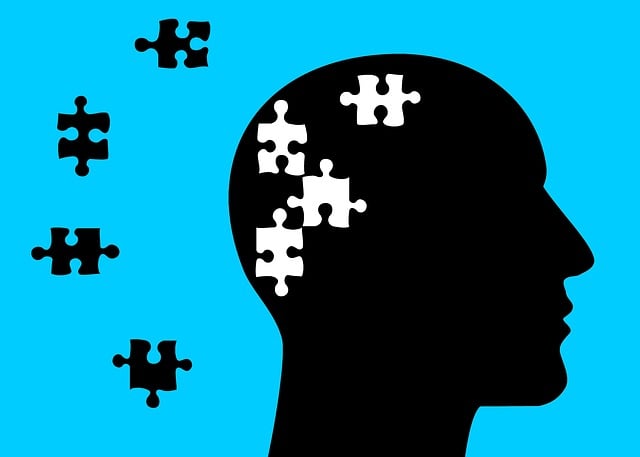The text discusses the barriers posed by stigma to individuals seeking Englewood ADD-ADHD Therapy. It highlights the importance of education in challenging societal biases, promoting understanding, and teaching conflict resolution. Tailored curricula for diverse age groups and learning styles are crucial, offering strategies for symptom management, positive thinking, and effective communication. Evidence-based practices like cognitive-behavioral therapy (CBT) and mindfulness interventions are integrated into successful programs, leading to improved mental wellness and quality of life. Creating supportive environments through group activities and open discussions enhances self-awareness and peer support. Evaluating program success through pre- and post-assessments measures changes in mental health literacy and stress management, ensuring education translates into real-world improvements.
Mental health education programs play a pivotal role in fostering well-being, especially with increasing concerns about stigma hindering access to care. This article explores strategic program design, focusing on engaging diverse audiences through tailored curriculum and evidence-based practices. We delve into the importance of age-appropriate instruction, integrating mindfulness, and creating supportive environments that encourage peer connections. Furthermore, it discusses evaluating success through effective measurement methods, offering practical insights for programs, including Englewood ADD-ADHD Therapy initiatives.
- Understanding Mental Health Stigma and Its Impact on Engagement
- Customizing Curriculum for Different Age Groups and Learning Styles
- Integrating Evidence-Based Practices in ADD-ADHD Therapy Programs
- Building a Supportive Environment: Fostering Peer Connections and Mindfulness
- Measuring Success: Evaluation Methods for Effective Mental Health Education
Understanding Mental Health Stigma and Its Impact on Engagement

Mental health stigma significantly influences the engagement of individuals in therapy and support programs. This societal bias often leads to misconceptions and fear surrounding mental wellness issues like ADD-ADHD, creating barriers that prevent people from seeking necessary care. Many struggle with self-esteem and open communication due to internalized stigma, making it challenging for them to actively participate in their treatment.
Overcoming this hurdle requires comprehensive education that challenges societal norms and promotes understanding. By teaching conflict resolution techniques and fostering an environment of acceptance, programs can enhance engagement and improve outcomes. Encouraging open dialogue about mental health fosters a sense of belonging, which is crucial for individuals navigating self-esteem improvements and the complexities of ADD-ADHD therapy.
Customizing Curriculum for Different Age Groups and Learning Styles

When designing a mental health education program, one of the key considerations is tailoring the curriculum to accommodate diverse age groups and learning styles. What works for adolescents might not be suitable for adults or children, so creating flexible content is essential. For instance, programs targeting school-aged children should incorporate interactive activities, visual aids, and storytelling to engage young minds. On the other hand, adult learners may benefit from more structured discussions, case studies, and role-playing scenarios to apply learned concepts in real-life situations.
Customizing the curriculum for different needs ensures that every participant receives valuable knowledge and skills relevant to their stage of life and learning preferences. For individuals dealing with conditions like ADD/ADHD in Englewood, specialized programs can offer tailored strategies for managing symptoms while fostering positive thinking and effective communication. Incorporating activities that promote anxiety relief through mindfulness or relaxation techniques can also be transformative for these specific learners, enhancing their overall well-being.
Integrating Evidence-Based Practices in ADD-ADHD Therapy Programs

Integrating evidence-based practices is a cornerstone when designing effective ADD-ADHD therapy programs, such as those offered at Englewood ADD-ADHD Therapy. These practices are backed by extensive research and have proven to be successful in managing symptoms and enhancing mental wellness. One key approach is cognitive-behavioral therapy (CBT), which focuses on identifying and changing negative thought patterns and behaviors associated with ADHD. CBT empowers individuals to develop self-awareness exercises tailored to their unique challenges, fostering emotional healing processes.
Additionally, mindfulness-based interventions have gained prominence for their role in regulating attention and emotions. By teaching present-moment awareness and non-judgmental acceptance, these techniques enable clients to better manage impulsive behaviors often linked to ADD/ADHD. Engaging in regular self-awareness exercises, combined with evidence-based therapy methods, can lead to significant improvements in overall mental wellness and quality of life for those navigating ADHD challenges.
Building a Supportive Environment: Fostering Peer Connections and Mindfulness

Creating a supportive environment is paramount when designing mental health education programs. This involves cultivating a safe and inclusive atmosphere where individuals feel comfortable expressing their thoughts and experiences, fostering open communication and building trust among peers. Encouraging peer connections can significantly enhance participants’ well-being and learning outcomes. Group activities and discussions allow individuals to share their journeys, offer support, and learn from one another, creating a sense of community within the program setting.
Mindfulness practices are also integral to cultivating a supportive environment. Integrating mindfulness techniques into the curriculum helps participants develop self-awareness, emotional regulation, and enhanced focus—skills crucial for managing mental health challenges like ADD/ADHD in Englewood. By promoting self-esteem improvement and confidence boosting through structured activities and risk management planning for mental health professionals, these practices empower individuals to navigate their mental health journeys with resilience and support from their peers.
Measuring Success: Evaluation Methods for Effective Mental Health Education

Evaluating the success of a mental health education program is crucial to ensuring its effectiveness and impact on participants’ lives. Measuring success goes beyond simply delivering content; it involves assessing changes in knowledge, attitudes, and behaviors related to mental wellness. One powerful method is pre- and post-program assessments, which can gauge the improvement in mental health literacy and self-care practices among participants. These assessments should cover various aspects, such as identifying stress management techniques, understanding common mental disorders, and enhancing communication strategies for seeking support.
Englewood ADD-ADHD Therapy, for instance, employs a combination of interactive workshops, group discussions, and individual reflection exercises to foster learning. Post-program surveys and interviews can capture the success of these initiatives by measuring changes in participants’ confidence boosting mechanisms, their openness to discussing mental health issues, and overall improvements in managing daily stressors. By utilizing such evaluation methods, Mental Wellness Coaching Programs Development can be tailored to meet specific needs, ensuring that education translates into real-world actions for better mental health outcomes.
Englewood ADD-ADHD Therapy highlights the multifaceted approach to mental health education program design. By addressing stigma, tailoring curricula to diverse learners, incorporating evidence-based practices, fostering peer support and mindfulness, and utilizing robust evaluation methods, we can create inclusive environments that empower individuals to prioritize their mental well-being. These strategies are vital steps towards improving access to quality mental health education, ultimately enhancing the resilience and thriving of individuals across all age groups.










